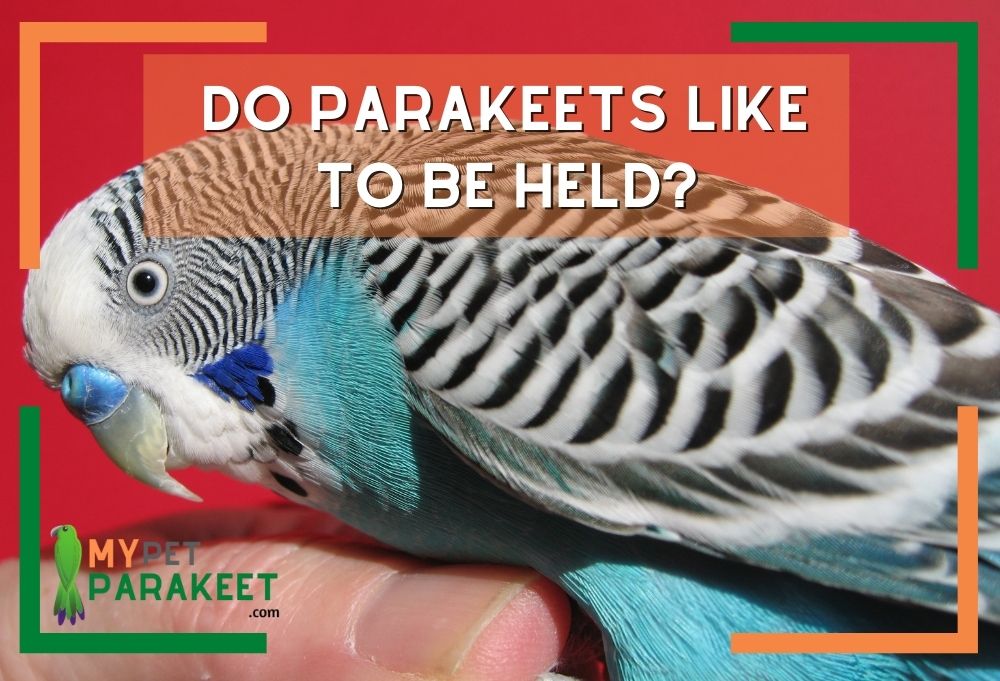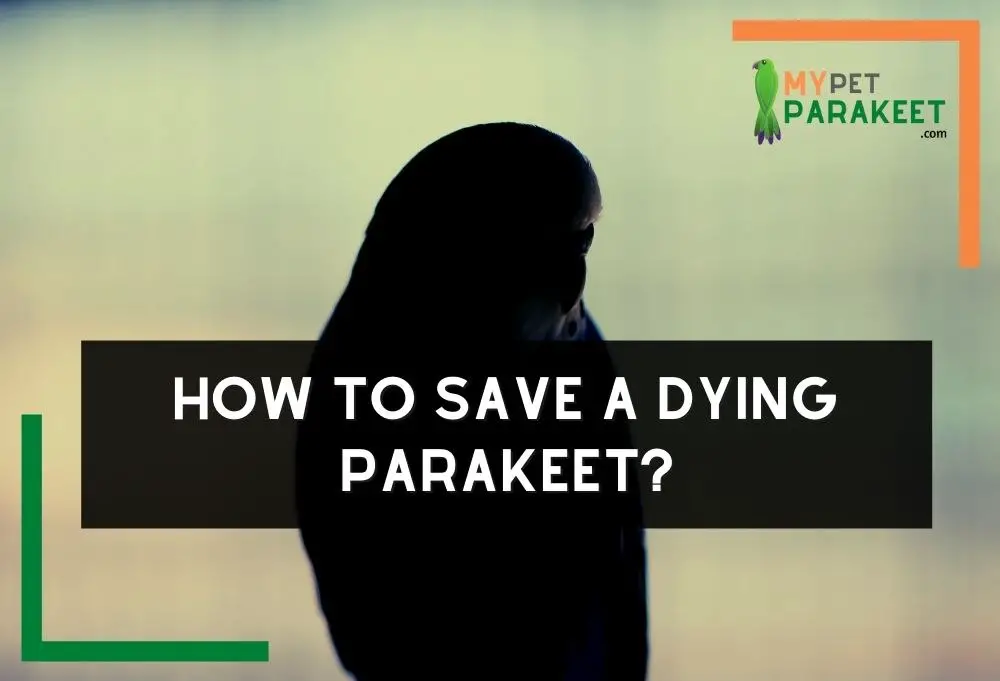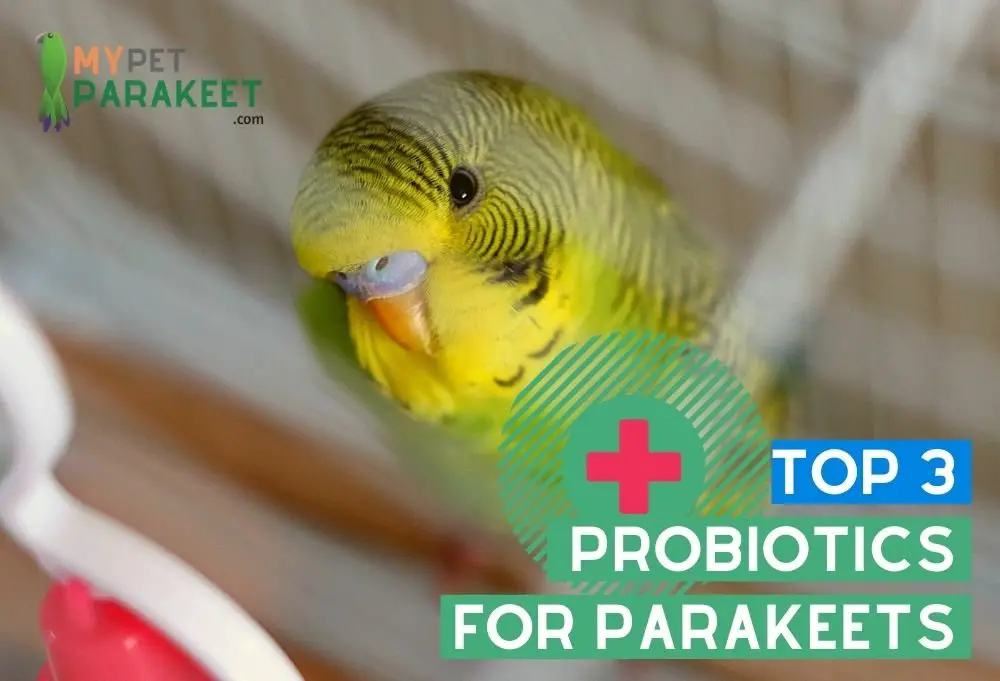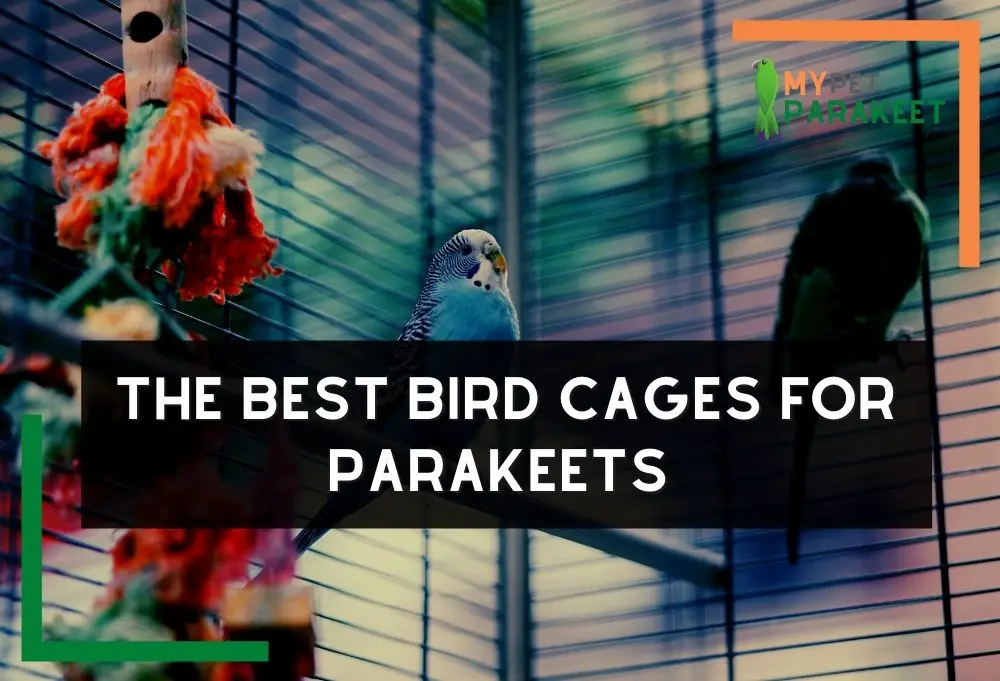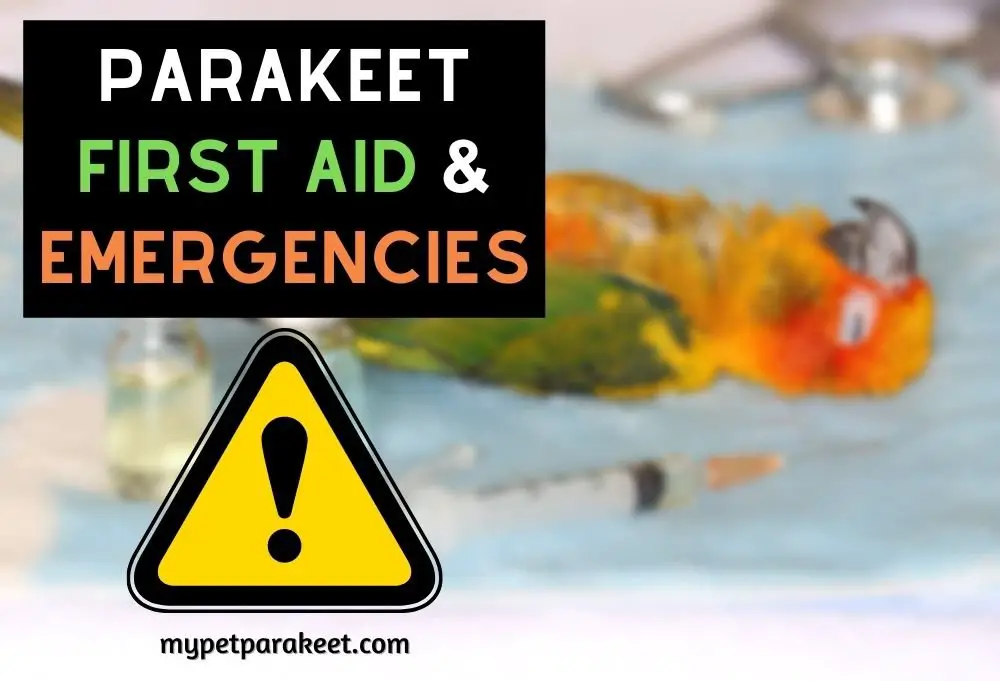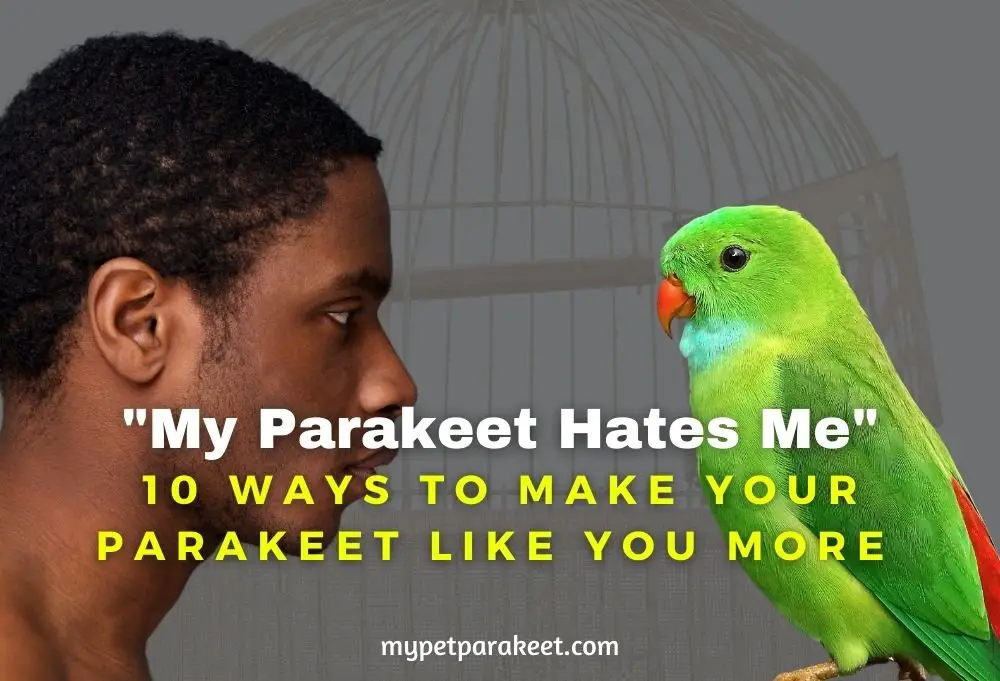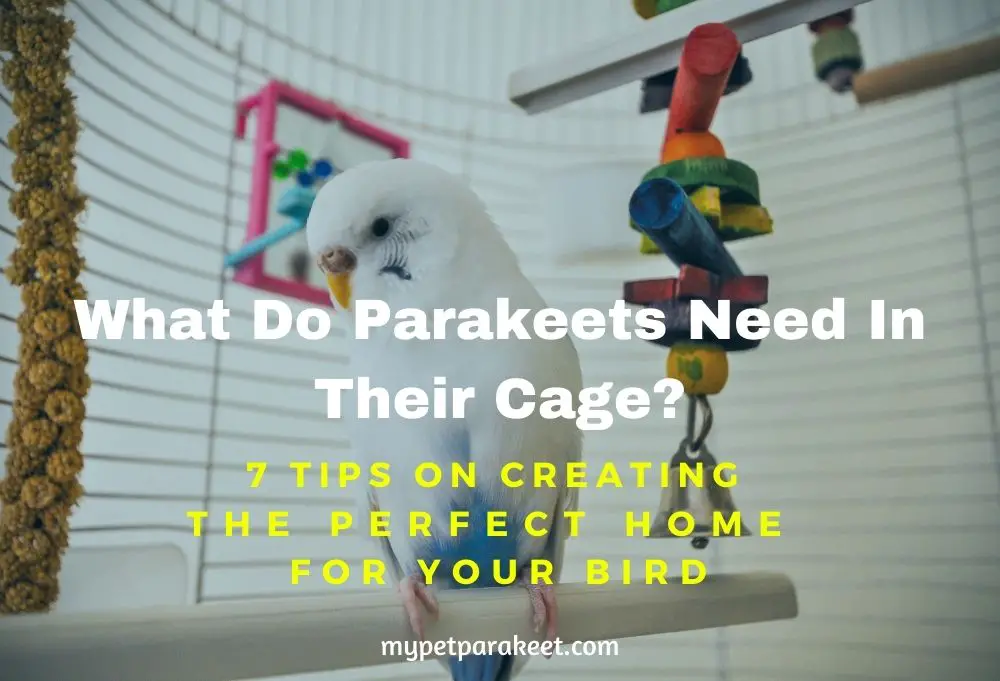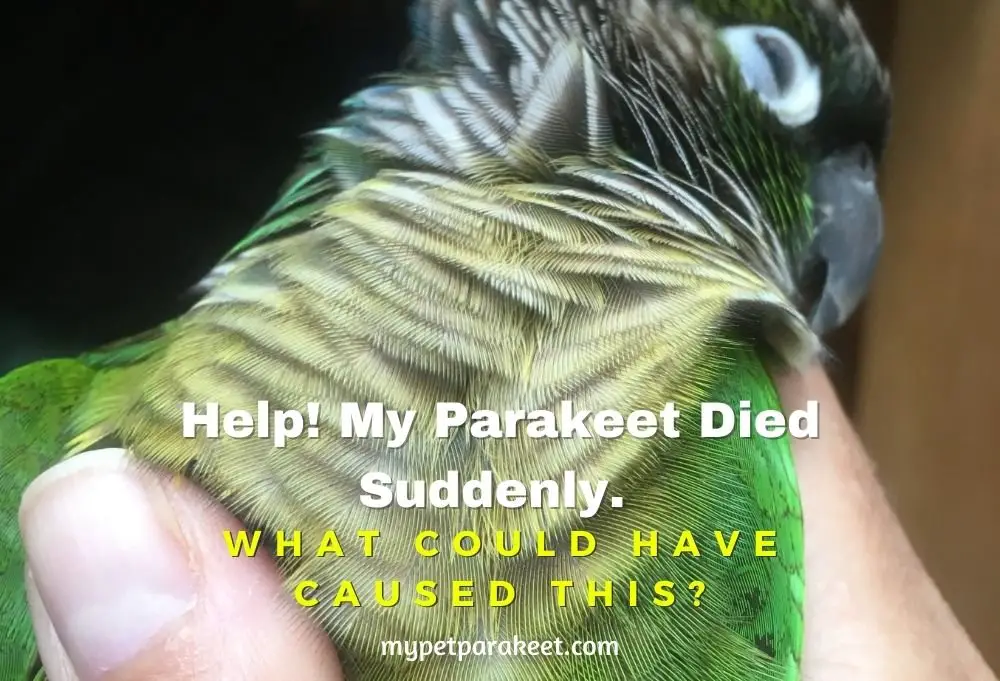Pet parakeets are vastly different from many other common pets like cats, dogs, and small fuzzy things. Parakeets can be fickle and have a range of complex behaviors that influence their relationship with you.
Parakeets' natural history is not one that is “cuddly”. But many parakeet owners can hold and carry their parakeet around happily, but the question is do parakeets actually like to be held?
The answer is more complex than a simple yes or no as it highly relates to the individual bird, how they were raised, how they have been trained, and the relationship you share with them.
In this article, we’ll delve into some of these topics around holding your parakeet.
Do Parakeets Like To Be Held?
To understand how and why our pets interact with us we first need to look at their natural histories.
Animals relate senses of comfort, security, and affection from their parents and mates.
Baby parakeets grow up with very little touch from their mothers. Mother birds are unable to cuddle or pet their young, instead put a lot of energy into insulating their nests to be as cozy as possible to keep their young warm and bring them food regularly.
On the other hand, touching is regularly during courtship and mating, with pairs of parakeets opting to groom each other to bond.
Because of these natural behaviors, for the most part, parakeets don’t tend to enjoy being held and petted, but they may enjoy it if they are handraised or view you as a mate.
Being viewed as a mate is not ideal, as they can become quite possessive over you and dislike any others that come near you. It is better for them to form a mate bond with another parakeet. Without another parakeet, your bird will become quite a dependant on you and if you are often out they can become quite lonely.
A hand-raised parakeet may be very different. Hand-raised birds will associate touch and being held by humans as a mothering and comforting thing and thus enjoy being held a lot more.
While it is not natural for a parakeet to enjoy being held if you spend a lot of time bonding and positively reinforcing your parakeet to touch then it can learn to view it as a positive rather than a negative.
How To Tell If Your Parakeet Does Not Want To Be Held
Understanding your parakeet’s behaviours will help you understand their emotions. Here are some signs your parakeet does not like you holding it.
- Eye pinning & puffing – the eyes give away a lot of emotions for parrots. Eye pinning is often observed as a sign of excitement in parakeets but can also be a sign of anger. If eye pinning is coupled with the puffing out of feathers then your approaching hand may be upsetting your parakeet.
- Squawking – an unhappy parakeet will make itself known well by basically, just screaming its head off.
- Biting – pretty self-explanatory right? You go to pick up your parakeet and it bites you. It’s made it pretty clear it does not like what you are doing. It feels either annoyed, angry or scared and is using its only line of defence – its beak!
- Evasive – when trying to pick up your parakeet it may try its best to get away from you. Making a pretty clear signal it does not want to be held.
How To Train Your Parakeet To Be Held
For some owners interacting with their parakeet is much more than just chattering to them, they want to be able to hold them and physically interact. If your parakeet is not comfortable with this, there are ways your can train and condition them to be more comfortable and even really enjoy it.
To train your pet parakeet you need to understand your bird, its natural behaviours, its emotions and what motivates it. The biggest mistake owners make is anthropomorphizing their birds, which basically means attributing them human emotions and experiences.
You need to see things from your parakeet point of view!
Train your parakeet to be held with these tips:
- Start from the outside – spend some time making them comfortable in your presence. Talk slowly and move slowly. Raise your hands every now and then to get them used to the movements.
- Find their motivation – what motivations your parakeet? More often than not this is food! Find their favourite food and take it out of their diet, only offer it to them by hand during training.
- Positive reinforcement – use their motivator to positively reinforce desired behaviours. When they are calm around you and let you approach them, reinforce. When they let you touch them, reinforce. When they hop on your hand, give them all the treats and praise!
- Move-in steps – continue to push boundaries and reinforce behaviours to shape the behaviour to get the desired outcome. Do it in little steps, taking it a bit further each time.
- Never force them – many “trainers” will tell you to grab your bird and force them into positions to desensitize them. You should never do this. You should always let a bird chose to engage with you. The more they are reinforced, the more they will want to interact with you!
- Don’t respond to negative behaviours – you can accidentally reinforce unwanted behaviours by reacting to them. For example, exclaiming or pulling your hand away when bitten is actually stimulating for a parakeet. Because they got a response from you they will continue to do it. Flat out ignore bad behaviour and they will soon get bored of it.
How To Bond With Your Parakeet
The better bond you have with your parakeet, the better it will respond to training with you to being held. Bond with your parakeet by:
- Talking to them – your voice will become comforting and associated with positive things.
- Spend time together – parakeets are highly social and just like to always be with you. Spending time together will build trust.
- Training – training helps to build trust. Over time you will be associated with fun, stimulation and of course, treats!
- Taking care – cleaning cages, offering tasty nutritious food, providing fun toys. All these things will make your parakeet associate you with really positive things.
- Patience – every bird moves at its own pace. If you are patient you will reap the benefits down the line.
- Consistency – this one is really important! Parakeets don’t like surprises. If you let them get away with bad behaviour one day and punish them the next they will feel insecure in their relationship with you and become anxious, not knowing what to expect. Set your boundaries and expectations and stick with them.
See more about bonding with your parakeet here.
Signs Of Trust
Observe your parakeet carefully, you will be able to tell when it trusts you and feels comfortable in your company. Look for:
- Playing
- Open body language
- Talking, singing, whistling
- Trying to engage with you
- Allowing petting and touching
- Falling asleep around you
- Grooming you
More on trust in this article.
Recap
While it is not completely natural for your parakeet to enjoy being held, it differs from bird to bird and is often based on its history and its relationship with you.
If you want to hold your parakeet you can build bond and trust with it and work on training to positively reinforce being held so that they can learn to enjoy being held.

